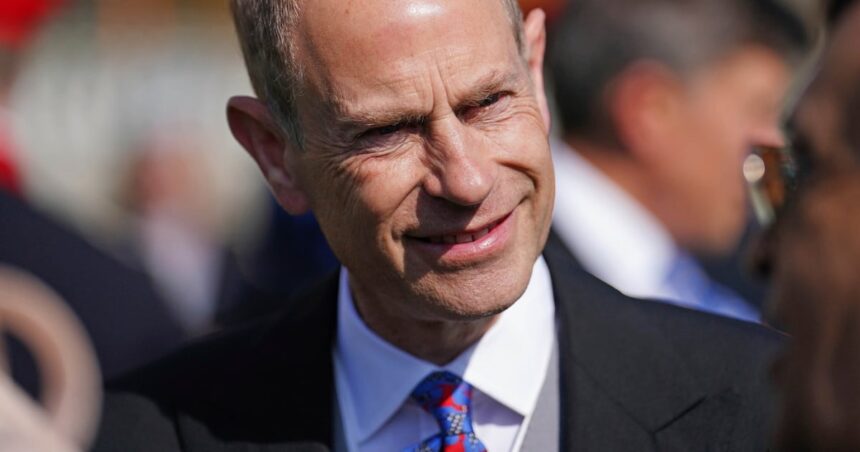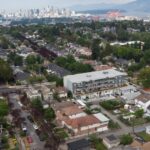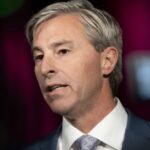Prince Edward returned to Prince Edward Island this week, where his presence sparked both warm local welcomes and renewed questions about the monarchy’s relevance in modern Canada.
The Earl of Wessex arrived in Charlottetown Tuesday morning, beginning a three-day tour filled with ceremonial appearances and community engagements. His itinerary included visits to Province House, local schools, and organizations with royal patronage connections.
“We’re delighted to welcome His Royal Highness back to the island that shares his name,” said Premier Dennis King, who greeted the prince at a formal reception. “These visits strengthen our historical connections while allowing islanders to share our vibrant culture and achievements.”
For many in attendance, the royal visit represented continuity and tradition. Hundreds gathered outside Government House, where Edward planted a ceremonial tree alongside Lieutenant Governor Antoinette Perry. Young students from L.M. Montgomery Elementary presented the royal visitor with handcrafted gifts and performed traditional Maritime folk songs.
But beneath the ceremonial pomp, polls suggest Canadian attitudes toward the monarchy continue to shift. A recent Angus Reid survey found that 62% of Canadians believe the country should move away from the monarchy in coming decades, up from 45% a decade ago.
“What we’re seeing is a generational divide,” explains Dr. Carolyn Harris, royal historian at the University of Toronto. “Older Canadians often maintain stronger emotional connections to the Crown, while younger generations increasingly question its practical relevance to their daily lives.”
This sentiment was evident among university students gathered for a small but visible demonstration near one royal event. Signs reading “Time for change” and “Modernize Canada” reflected growing republican sentiment, particularly among voters under 35.
“I respect the history, but it’s 2024,” said Maya Johnston, a political science student at UPEI. “We spend millions on these visits while debating how to fund healthcare. There are legitimate questions about priorities.”
The costs associated with royal visits have become increasingly scrutinized. While exact figures for Prince Edward’s trip haven’t been disclosed, the Department of Canadian Heritage typically allocates between $500,000 and $3 million for royal tours, depending on length and security requirements.
The prince’s visit comes at a delicate moment for the monarchy in Canada. King Charles III’s ascension hasn’t generated the same level of public affection enjoyed by Queen Elizabeth II, whose 70-year reign provided stability and familiarity for generations of Canadians.
Constitutional experts note that changing Canada’s system of government would require opening complex constitutional negotiations. “The monarchy is woven into our constitutional fabric,” explains Philippe Lagassé, associate professor at Carleton University. “Removing it would require unanimous provincial consent, which makes republican reform extremely difficult regardless of public opinion.”
Indigenous perspectives add another dimension to the conversation. While some Indigenous leaders view treaties signed with the Crown as foundational to nation-to-nation relationships, others see the monarchy as a painful reminder of colonization.
“The Crown-Indigenous relationship is both historical protection and historical harm,” says Mi’kmaq elder Sarah Francis, who attended a reconciliation-focused event during the royal visit. “Any conversation about the monarchy’s future must include meaningful Indigenous participation.”
Prince Edward, seemingly aware of these complexities, emphasized practical connections during his visit. At Holland College’s Centre for Marine Training, he focused on the Duke of Edinburgh’s Award program, which has benefited thousands of young Canadians. The program, founded by his late father Prince Philip, promotes youth development through community service and outdoor activities.
“What matters isn’t the institution but what we do with these platforms,” Edward remarked while meeting award recipients. “These programs create opportunities for young people regardless of background.”
Public reaction to the visit highlighted Canada’s evolving relationship with the monarchy. A CBC street poll found that while most islanders expressed goodwill toward Edward personally, fewer than half could explain the monarchy’s current role in Canadian governance.
As Prince Edward’s motorcade moved through Charlottetown’s historic streets, the contrasts were evident: enthusiastic monarchists waving Union Jacks alongside curious onlookers and those simply enjoying a break from routine. This mixture of ceremony, curiosity and questioning perhaps best represents Canada’s contemporary relationship with the Crown—rooted in history yet increasingly examined through a modern lens.
“We’re in a period of transition,” notes historian Harris. “The challenge for the monarchy is demonstrating continued relevance while respecting that Canadians are having legitimate conversations about our constitutional future.”
The prince concludes his visit Thursday with a reception highlighting environmental conservation efforts in Atlantic Canada before departing for the United Kingdom.






